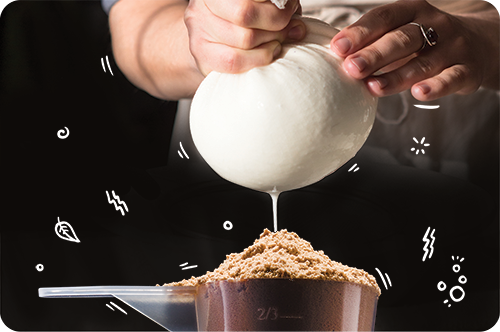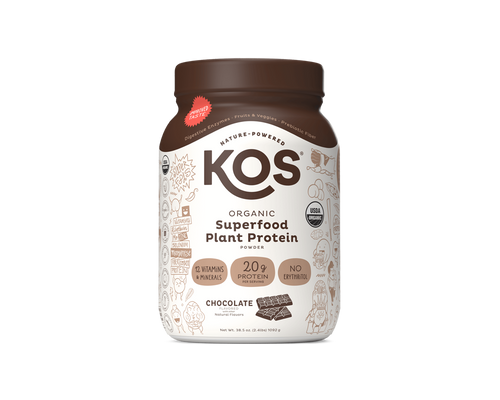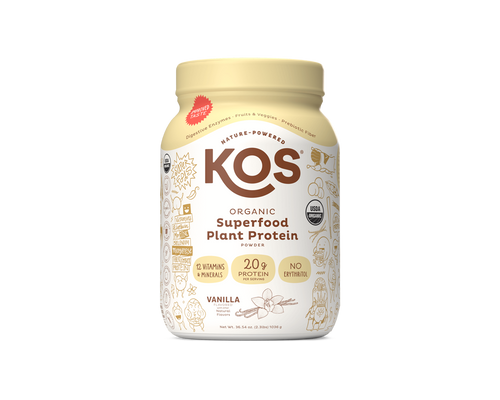Table of Contents
Lactose-Free Protein Supplements
You’re lactose intolerant and want to supplement your diet—and possibly your workout—with protein. But the whey-based protein which seems to be everybody's favorite is derived from the cheese-making process, and is thus loaded with the stuff that turns you into a gas-filled balloon. Is there a solution?
Yes. And our home planet is carpeted with the stuff.
What is Lactose?
Lactose is the natural sugar in milk and other dairy products. Normally, lactose is broken down into two sugars—glucose and galactose—by a natural enzyme called lactase, which is used by the body to digest lactose. If your body doesn't produce enough lactase, symptoms of lactose intolerance appear, and they are a bummer.
Since lactose is exclusively found in the milk of animals, including cows, goats, and people, it is frequently known as "milk sugar." Not all milk products contain the same quantity of lactose.
Hard cheeses—cheddar, gruyère, asiago and parmesan, for instance—contain very little or no lactose, whereas milk, ice cream, and yogurt all have significant amounts of lactose.
The elimination of whey (a liquid mixture of fat, lactose, and protein) during manufacturing, as well as the continued degradation of lactose by microorganisms throughout the aging procedure, cause hard cheeses to have lower levels of lactose.
Without the soundalike enzyme lactase, lactose can cause severe digestion problems, including nausea, gas, cramping and diarrhea.

What is Lactose Intolerance?
In adulthood, about 65% of the world's population has a reduced ability to digest lactose. Read that again. A majority of the world's adults have lactose intolerance. It is only a question of degree.
Congenital lactase deficiency, often known as congenital alactasia, is an enzyme deficiency in which newborns are unable to digest lactose in breast milk or formula. Lactose intolerance in this form causes severe diarrhea. The infant with this deficiency might develop severe dehydration and weight loss if not given a lactose-free infant formula. As an adult, lactose intolerance manifests as something less dangerous, but no less constricting in the extreme, gassy discomfort it causes in the bowel.
Lactose intolerance in adulthood is caused by reduced production of lactase after infancy—a condition called lactase non persistence. It does make some sense that as we mature, the natural mechanism will begin to lower our enzymatic ability to digest the breast milk on which we so depend as infants.
If individuals with lactose intolerance consume lactose-containing dairy products, they may experience abdominal pain, bloating, flatulence, nausea, and diarrhea beginning 30 minutes to 2 hours later. This has come to be known as a feature of whey-based protein supplements.
A plant-based protein revolution has arisen to address the whey protein discomfort and bloating which has been tolerated these many decades by protein supplement products. Both the gym-goer and the more casual protein-supplement user can benefit from the appearance of plant-based protein supplements in the protein powder marketplace.
Whey Protein Means Gas and Cramping
Whey protein powder is made from … whey! Whey is a milk derivative, and contains amino acids, vitamins, minerals, and other nutrients. It also contains a milk sugar called lactose.
Whey protein powder can — yes — help boost muscle mass. But whey protein powder isn't suitable for everyone. It can cause painful gas and cramping, even in those who have not been formally diagnosed as lactose-intolerant.
If you are not formally lactose-intolerant but still have a reaction to dairy-based products, you are likely afflicted with one degree or another of dairy sensitivity.
Dairy sensitivity does not cause abdominal issues of the same severity that characterize lactose intolerance, but dairy insensitivity is an uncomfortable lifestyle-restricting condition nonetheless. And even when you are using a lactose-reduced whey product, you may still be subject to the symptoms of dairy sensitivity.
It all comes down to the base ingredient in most commercial protein powder products: whey.
What is Whey?
Whey is the watery part of milk, to put it as plainly as possible. Milk is composed of solids and liquids, which is why it is more viscous than water. If you've ever opened a container of yogurt and noticed the shallow quantity of clear fluid on top — the stuff that obliges you to stir the yogurt —that watery stuff atop the yogurt is whey.
Commercially available whey protein powder is produced during the cheese-making process, so that the liquid whey is separated from the milk solids. How is this done?
Following quality tests of the cow's milk itself, enzymes are added which act to separate the curd solids from the liquid whey. The protein in the separated liquid whey is then concentrated and isolated after the whey has been pasteurized (superheated to kill any microbes in the whey), and then dried into a powder.

What is a lactose-free protein powder?
A protein powder manufactured without the milk protein lactose is—yes—a lactose-free protein powder. Dairy-free protein powders are those that don't come from the milk of lactating animals – such as cows, buffalo, sheep, goats, or camels.
Whey protein isolate is produced by using charged ions to separate and dispense with the lactose that naturally occurs in animal milk. Even in this exacting process, the lactose can’t be entirely removed.
Whey and casein (two of the most common protein powder varieties) are not dairy-free since they are derived from animal milk. To avoid lactose, which can be difficult to digest, people increasingly choose dairy-free protein supplements.
Protein Powder for the Lactose Intolerant
Contrary to popular belief, plants—in proper and simple combination with each other—provide a complete protein profile. Rice, pea, and hemp-based powders are widely available and increasingly popular plant-based protein options. As a result, plant-based protein supplements are increasing their market share as people who want none of the complications of whey-based protein supplements turn to plant-based protein supplement alternatives. These are being avidly investigated and taken up by powdered protein enthusiasts.
What are some of the dairy-free protein powder options for the lactose-averse protein supplement user?
Rice protein is a lactose-free option. This protein source is, unsurprisingly, made from white rice, and contains carbs, fiber, calcium and iron. Pea protein is another lactose-free protein source. It's made from yellow peas and features a combination of plant proteins which in total provide a protein profile similar to that of whey, but without the lactose body blow and other troubling issues to do with whey processing.
Hemp protein powder is a fantastic plant-based substitute. It is lactose and gluten-free, and it has the same nutritional advantages as whey protein.
The benefits of high-quality protein supplements without any dairy are available to everyone, and are changing the protein supplement landscape.
Plant-Based Complete Protein
As far back as we can remember (he generalized), we've been told to eat our vegetables. The inherent value of having plants in the diet is not a new phenomenon. Some of us vividly recall our anxious parents worriedly reminding us all during dinner to clear our plates of veggies.
Even before the science on plant nutrition was widely understood by the general population (you and me, that is), it was understood that eating plant matter was simply good for your physiology. Now we know how and why plant-based diets are so good for both us and the environment.
The even better news is that plant-based protein powders contain a complete protein profile through a calibrated intermingling of complementary plant aminos. What's more, plant-based protein powders are not troubled by the additives and fats that can sometimes accompany whey-based protein products, which are associated with the resource-intensive cattle industry.

What plants have a naturally high level of protein? Beans, lentils, and peas, nuts and seeds are all examples of high protein plants. Chickpeas, lentils, beans (black, kidney, and adzuki beans) are all in the high plant protein club. Plants of all kinds are protein-laden, and in fact it is through their plant-based diet that meat animals come by their own protein content.
Plant proteins also provide fiber, vitamins, and minerals. We can easily increase our intake of helpful plant fiber—which optimizes a helpful digestive sensation known as satiety —by eating these plant foods that double as a clean protein delivery system.
Whey-based protein has forever been considered the kingpin in the protein supplement universe. The truth about plant-based protein alternatives is changing that thinking in ways that will make us—and the planet—healthy and whole.
FAQs
Are protein powders lactose free?
No, not all protein powders are lactose free. Even whey isolates that go to great lengths to remove lactose from the whey product still contain trace amounts of lactose, a dairy component to which about 65% of the earth's population is allergic to some degree. Plant-based protein powders based on pea protein are entirely lactose free options.
Can I have protein powder if lactose intolerant?
Yes, lactose intolerant people can still enjoy protein powder supplements. While whey protein is the most commonly used protein powder supplement, it does contain lactose. There are dairy-free, vegan protein powders available for those who cannot digest dairy products.
What protein powder has no lactose?
If you are looking for protein powder with no lactose, there are several lactose-free options available. Hemp protein powder is a great source of plant-based protein that is free of lactose, and pea protein powder as well as soy protein powder also offer lactose-free protein supplements.






